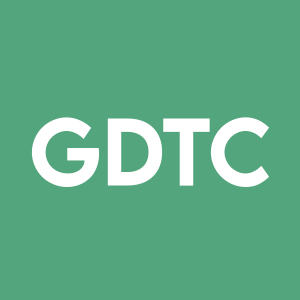CytoMed Diversifies into Regenerative Medicine after Research Collaboration with Singapore's Sengkang General Hospital to Test Injectable Umbilical Cord-Derived Mesenchymal Stem Cells for Cartilage Regeneration
SINGAPORE / ACCESSWIRE / March 20, 2024 / CytoMed Therapeutics Limited (NASDAQ:GDTC) ("CytoMed" or "the Company"), a Singapore biopharmaceutical company that focuses on utilizing its licensed proprietary technologies to create novel allogeneic cell-based immunotherapies for treating a range of cancers, recently announced that it has entered into a research collaboration agreement with Sengkang General Hospital Pte Ltd., a public hospital in Singapore and a member of the SingHealth Group. The two entities aim to establish a proof-of-concept for the use of an injectable cartilage regeneration therapy developed from donor-sourced umbilical cord-derived mesenchymal stem cells (UC-MSCs). This injectable therapy will undergo a proposed Phase I clinical trial, which is planned to take place in Singapore and is expected to be completed within two years.
UC-MSCs are a form of stem cells that are isolated from the umbilical cord and possess the ability to self-renewal and differentiate into many cell types, such as bone, cartilage, fat, and muscle cells. They are also shown to modulate immune responses and inflammatory markers, making them ideal for application in regenerative medicine and immune-related disorders.
"The unique advantages of UC-MSCs include their abundant supply, compared to cord blood-derived MSCs or adult stem cell sources like bone marrow-derived MSCs. Freshly harvested UC-MSCs are believed to possess higher proliferation capacity and greater differentiation potential. Additionally, UC-MSCs have been shown to exhibit lower immunogenicity and are less likely to be rejected by the recipient's immune system, which opens the possibility for allogeneic (donor-to-recipient) transplantation. Therefore, UC-MSC would serve as an ideal source of regenerative cells for treating osteoarthritis of the knee. This hypothesis has also been supported by many international published clinical papers. We are excited to embark on this collaboration, which will be the first UC-MSC clinical trial to be conducted in Singapore," added Dr Tan Wee Kiat, co-CEO and Chief Operating Officer of CytoMed.
The global scientific community has recently seen increased interest in utilizing MSCs as a potential treatment for tissue regeneration, as well as inflammatory and regenerative diseases. The research collaboration announcement comes at a time when Singapore's aging population sees an uptick in osteoarthritis of the knee, and will be in line to support healthcare initiatives for regenerative therapy.
For more information about the company's services, latest news, and ongoing initiatives, visit https://w2.cytomed.sg and https://spotlightgrowth.com/navigating-the-challenges-facing-an-aging-global-population-how-cytomed-seeks-to-help-boost-cartilage-regeneration/
About CytoMed Therapeutics Limited
Incorporated in 2018, CytoMed was spun off from the Agency for Science, Technology, and Research (A*STAR), Singapore's national research and development agency in the public sector. CytoMed is a biopharmaceutical company that focuses on harnessing its licensed proprietary technologies to create novel cell-based immunotherapies for the treatment of human cancers. The development of novel technologies has been inspired by the clinical success of existing CAR-T in treating hematological malignancies as well as the current clinical limitations and commercial challenges in extrapolating the CAR-T principle into the treatment of solid tumors. For more information about CytoMed, please visit www.cytomed.sg.
About Spotlight Growth
SpotlightGrowth.com is a digital hub for micro-caps, small-caps, venture capital, private equity, crowdfunding, cryptocurrency, and other emerging growth investors. SpotlightGrowth.com serves as our media subsidiary and provides insights on small-cap companies.
Disclaimer
This communication was produced by Spotlight Growth (SG), an IR advisor to small and micro-cap companies. SG is not a registered or licensed broker-dealer or investment adviser. No information contained in this communication constitutes an offer to sell, a solicitation of an offer to buy, or a recommendation of any security. SG may be compensated by respective clients for publicizing information relating to its client's securities. See https://spotlightgrowth.com/disclosures for more information.
Contact:
CytoMed Therapeutics
enquiry@cytomed.sg
Spotlight Growth
info@spotlightgrowth.com
SOURCE: CytoMed Therapeutics Limited
View the original press release on accesswire.com








